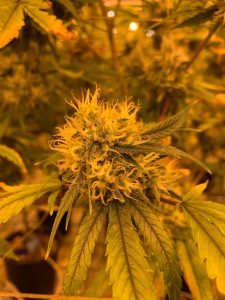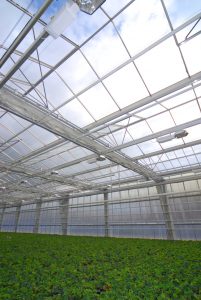Mendocino County is the latest to sign an agreement with the California Cannabis Authority in an effort to help local governments with regulatory compliance and assist in creating a rich pool of data about the cannabis industry. Our attorneys know one of the most difficult things about establishing any new industry is lack of concrete data. There can be a lot of growing pains as authorities and economic leaders gather a foundation of facts that help in making critical decisions about public safety, regulations, and taxation. This is particularly true when dealing with a controlled substance, like marijuana. Even though marijuana has been legal for medical purposes in California since the passing of the Compassionate Use Act of 1996, the switch to recreational legalization in the state as of Jan. 1 was a real game changer. MAUCRSA, Medicinal and Adult-Use Cannabis Regulations and Safety Act, was created to combine guidelines for medical marijuana with all the new stringent licensing rules for recreational cannabis, so all regulations lived under one umbrella.
of data about the cannabis industry. Our attorneys know one of the most difficult things about establishing any new industry is lack of concrete data. There can be a lot of growing pains as authorities and economic leaders gather a foundation of facts that help in making critical decisions about public safety, regulations, and taxation. This is particularly true when dealing with a controlled substance, like marijuana. Even though marijuana has been legal for medical purposes in California since the passing of the Compassionate Use Act of 1996, the switch to recreational legalization in the state as of Jan. 1 was a real game changer. MAUCRSA, Medicinal and Adult-Use Cannabis Regulations and Safety Act, was created to combine guidelines for medical marijuana with all the new stringent licensing rules for recreational cannabis, so all regulations lived under one umbrella.
The mission of the newly formed California Cannabis Authority is to “develop and manage a statewide data platform that will gather, collect, and analyze information from a myriad of data sources into one resource.” The more local governments that participate, the more compelling and significant the data will be for everyone who accesses it.
The group was created by the California State Association of Counties Finance Corp. The group started with San Luis Obispo, Humboldt, and Monterey Counties on board, with Mendocino following suit. According to a report by the Ukiah Daily Journal, the platform will make it easier to track tax payments, provide compliance information to county departments, and allow health officials to access product information. Continue reading
 California has been hailed with potential to rein as the world’s largest regulated marijuana market on the planet, but currently trails in per-capita sales when compared with other recreational markets across the United States. Much of this can be attributed to California’s rampant illicit cannabis market, and further compounded by the state’s stringent regulation requirements for lawful cannabis businesses.
California has been hailed with potential to rein as the world’s largest regulated marijuana market on the planet, but currently trails in per-capita sales when compared with other recreational markets across the United States. Much of this can be attributed to California’s rampant illicit cannabis market, and further compounded by the state’s stringent regulation requirements for lawful cannabis businesses. Cannabis Law Group's Medical Marijuana Legal Blog
Cannabis Law Group's Medical Marijuana Legal Blog





 A panel in California has declared that marijuana smoke and THC – the chemical within the drug responsible for producing the ‘high’ – pose a risk to women who are pregnant, as well as to their unborn babies. The move will require all legal cannabis products sold in California to carry warning labels, though changes will not begin for a year.
A panel in California has declared that marijuana smoke and THC – the chemical within the drug responsible for producing the ‘high’ – pose a risk to women who are pregnant, as well as to their unborn babies. The move will require all legal cannabis products sold in California to carry warning labels, though changes will not begin for a year. Following a slew of vaping related lung disease cases, a Los Angeles City Council member calls for a year-long ban on all vaping sales.
Following a slew of vaping related lung disease cases, a Los Angeles City Council member calls for a year-long ban on all vaping sales.
 Agriculture is working on a system of regulations for naming craft cannabis strains. According to a report from
Agriculture is working on a system of regulations for naming craft cannabis strains. According to a report from  food policy legislation) measures to legalize industrial hemp sales, cultivation, and processing, according to a report from
food policy legislation) measures to legalize industrial hemp sales, cultivation, and processing, according to a report from  of data about the cannabis industry. Our attorneys know one of the most difficult things about establishing any new industry is lack of concrete data. There can be a lot of growing pains as authorities and economic leaders gather a foundation of facts that help in making critical decisions about public safety, regulations, and taxation. This is particularly true when dealing with a controlled substance, like marijuana. Even though marijuana has been legal for medical purposes in California since the passing of the
of data about the cannabis industry. Our attorneys know one of the most difficult things about establishing any new industry is lack of concrete data. There can be a lot of growing pains as authorities and economic leaders gather a foundation of facts that help in making critical decisions about public safety, regulations, and taxation. This is particularly true when dealing with a controlled substance, like marijuana. Even though marijuana has been legal for medical purposes in California since the passing of the  politicians at the federal level are starting to wise up and take this issue seriously as well.
politicians at the federal level are starting to wise up and take this issue seriously as well.  banning) marijuana businesses, growing operations, home cultivation, testing, sales, manufacturing and distribution. That same divide is reflected in the Riverside County Board of Supervisors in how to handle regulations in unincorporated parts of the county. But it looks like after a recent vote, the board will be moving forward on its own with those regulations, while also forgoing a tax ballot initiative in November, according to an article from
banning) marijuana businesses, growing operations, home cultivation, testing, sales, manufacturing and distribution. That same divide is reflected in the Riverside County Board of Supervisors in how to handle regulations in unincorporated parts of the county. But it looks like after a recent vote, the board will be moving forward on its own with those regulations, while also forgoing a tax ballot initiative in November, according to an article from